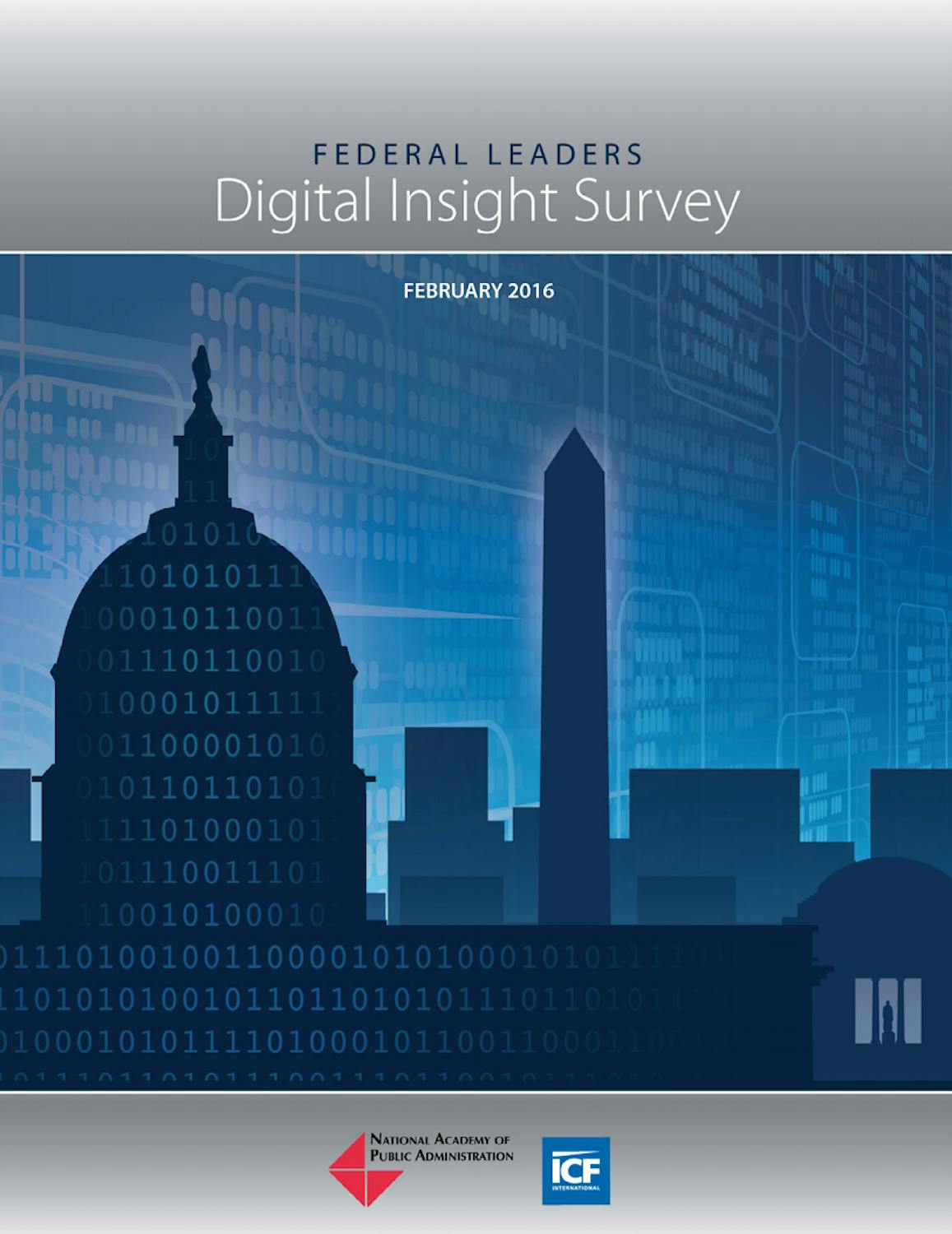
Federal Leaders Digital Insight Study 2016
The Federal Leaders Digital Insight Study, conducted by the National Academy of Public Administration (the Academy) in collaboration with ICF, is an annual report designed to survey Federal Leaders' perspectives about the pace with which the government is adopting, applying, and leveraging technological advancements in service to its constituencies.
This year's report, the second installment in the series, focuses on actions that leverage existing institutions and agencies' resources and experiences to adopt and apply digital technology throughout government. These include: identifying best practices to be shared across agencies; creating standards for hiring the best possible digital technology professionals; embracing ways to foster digital innovation and reimagination; ensuring that digital security is effective while not hindering the application of technology; and continuing to measure stakeholder satisfaction.
Click the button below to view the View Study Report.
View ReportKey Findings
In sum, the findings and recommendations highlight the challenge of applying new technology not just to make existing government business processes better, but also to underscore the idea if that if government is going to keep pace with the private sector, it must foster true reimagination and transformation of digital operations to make them more effective and efficient for the American people.
Recommendations
The panel’s recommendations focus on actions that leverage existing institutions (such as the Chief Information Officers’ Council and the President’s Management Council) and agencies’ resources and experiences to adopt and apply digital technology throughout government. These include identifying best practices to be shared across agencies; creating standards for hiring the best possible digital technology professionals; embracing ways to foster digital innovation and reimagination; ensuring that digital security is effective while not hindering the application of technology; and continuing to measure stakeholder satisfaction with the digital government. None of these recommendations requires new legislation
